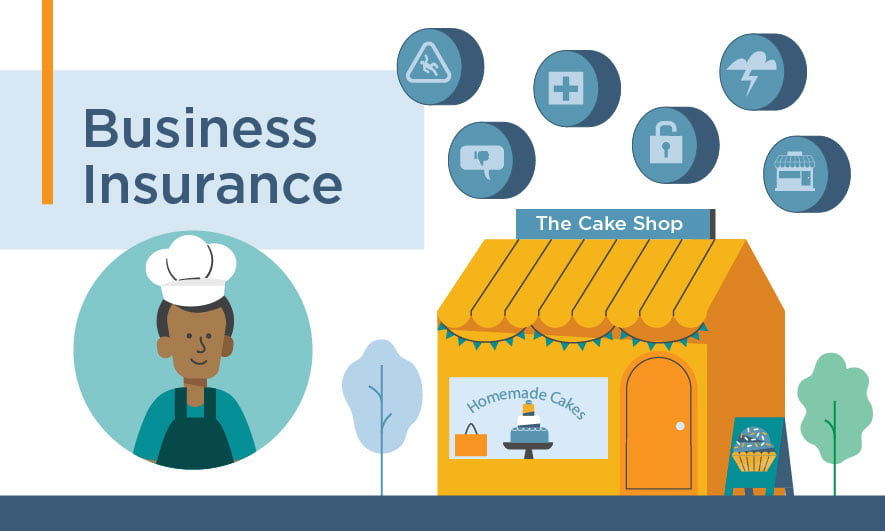Commercial insurance is one of the major parts of a business since it offers financial protection and peace of mind to an entrepreneur. It is available in many forms, all of which have been tailored to safeguard businesses from probable risks or liabilities. This blog elaborates on the fine details of commercial insurance: its importance, types of policies, benefits of obtaining one, and how to choose an appropriate policy for your business.
Importance of Commercial Insurance
Financial Protection
One of the major reasons that businesses consider investing in commercial insurance is that it helps take care of one’s financial health. Accidents, natural disasters, lawsuits, and other unfortunate catastrophes can all result in a business’s demise through massive financial losses. Commercial insurance helps in mitigating these risks by covering the expenses resulting from such incidents.
Legal Requirement:
Several types of commercial insurance are mandated in many regions by law. Workers’ compensation insurance could be required if a company has workers. If a business is non-compliant in these areas, then fines, penalties, and other legal issues may arise.
Business Continuity
Proper commercial insurance coverage is important for business continuity. If catastrophe strikes in the form of a fire or a major storm, with the right insurance coverage, a business may be back up and running quickly, or it may shut its doors permanently. Business interruption insurance can help recover lost income and operating expenses while a business is recovering from an event covered under such insurance.
Protection Against Lawsuits
With the litigious society of today, businesses are constantly under threat of lawsuits. Be it a customer slipping and falling on your premises or some dispute related to a contract, legal battles not only cost a lot but also consume valuable time. Liability insurance helps to cover legal fees, settlements, and judgments so that business owners can focus on running their operations rather than worrying about possible lawsuits.

Types of Commercial Insurance
Most of the policies are targeted at specific risks and needs, ranging from a number to a few hundred. Some of the more common types of commercial insurance are as follows:
General Liability Insurance
General liability insurance is a core policy for most businesses. It provides indemnity for bodily injury, damage to property, and personal and advertising injury claims. For example, if any customer visiting your store gets hurt or if inadvertently your business has damaged someone else’s property, the general liability insurance will help to pay for it.
Property Insurance
Commercial property insurance will help protect the physical assets of your business, including buildings, equipment, inventory, and even furniture. This policy has blanket coverage against losses by perils such as fire, theft, vandalism, and some natural disasters. Proper insurance over property ensures reconstruction or replacement of the respective assets without necessarily placing the owner under financial stress.
Workers’ Compensation Insurance
Workers’ compensation insurance is greatly required for employees in companies. The type of insurance coverage that provides for the medical expenses, lost wages, and costs of rehabilitation of workers in the event of an accident or becoming ill while working due to work-related reasons. This insurance would also include protection for businesses from lawsuits that may be filed by an injured worker.
Professional Liability Insurance
Professional liability insurance is usually required for any business that offers professional services or advice. Also known as E&O insurance, this type of insurance provides coverage in case a claim arises due to negligence, errors, or omission while disbursing your services. For instance, professional liability insurance will help pay for legal defense costs and settlements if one of your clients accuses your advice as being responsible for losses.
Business Interruption Insurance
Business Interruption Insurance : Replaces lost income and pays continuing expenses while a business may not function due to a covered event such as natural disaster, fire, or any other event that causes an interruption to the normal flow of business. This kind of insurance helps a business continue to meet its financial obligations while it recovers from a loss.
Commercial Auto Insurance
If your business either owns or uses vehicles for work, the commercial auto insurance will be a required factor in the form of physical damage and liability coverage with additional medical expenses in the case of an accident involving a company-owned vehicle. Commercial automobile insurance can help protect you on the road, whether it’s one company car or a fleet of delivery trucks.
Cyber Liability Insurance
With increasing dependency on technology, the importance of cyber liability insurance is greater today than ever before. Such insurance covers losses and liabilities associated with data breaches, cyber-attacks, and other cyber events. It may further extend to notification expenses to the affected customers, legal fees, and recovery of compromised data.
Product Liability Insurance
Product liability insurance is a must for any business involved in manufacturing or selling products, as it provides coverage against claims raised due to defective or unsafe products causing injury or damage. This kind of insurance aids a business in covering the legal defense associated with product liability claims, settlements, and judgments.
EPLI—Employment Practices Liability Insurance
Employment practices liability insurance protects a concern against claims raised by employees with respect to issues related to the job, such as discrimination, wrongful termination, harassment, and other disputed employment issues. It can help to pay legal fees, settlements, and judgments, hence providing a financial safety net for businesses facing employment-related claims.

Benefits of Commercial Insurance
Risk Management
Effective risk management is the most important advantage of commercial insurance. This would imply that by shifting potential risks to an insurance company, a business will now have more time and energy to focus on its operations without worrying about what might happen. Since various risks are covered by insurance, one is able to plan and operate with confidence.
Peace of Mind
Knowing that the business has insurance gives peace of mind to the owner and stakeholders. With it, they are able to focus on their business growth and strategic pursuits toward long-term goals, rather than worrying too much about the setbacks along the way.
Financial Stability
Commercial insurance provides for financial stability. With insurance, the revenue needed to recoup losses and rebuild is realized in the event a covered loss occurs. This allows for operations to continue as near normal as possible, retaining the bulk of employees, and still servicing customers while rebuilding from the loss.
Legal Compliance
Having the proper commercial insurance policies in place means that your business stays in compliance with the local, state, and federal codes. Not only will this help the business avoid legal penalties and fines, but it will also enhance the reputation of a business to be very responsible and compliant.
Competitive Advantage
Most businesses with comprehensive insurance packages have an edge over others in the marketplace. Any business showing commitment to managing its risks and interest tends to attract clients, partners, and customers who trust in them. Insurance is a significant value addition when negotiating contracts and partnerships.
How to Choose the Right Commercial Insurance Policy
Choosing the appropriate commercial insurance policy for your business will require that you consider a number of factors. Follow these steps to guide you in making a proper decision:
Assess Your Risks
First, determine what risks your business is specifically open to. This includes the kind of business, the type of industry, location, and whether there are many employees or few. Knowing what risks you are up against will help you determine what types of coverage you’ll need.
Assess Available Coverage Options
Research the types of commercial insurance policies and their coverage options available in the market. Shop around for policies with a number of different insurance providers to find the right one for your business. Check things like coverage limits, deductibles, and exclusions.
Speak with an Insurance Agent
One can seek advice from an experienced insurance agent or broker, in which the entire process of choosing the right commercial insurance policy will become easy. He will help by providing insight and going through the complex terms of insurance and recommend policies that fit your business needs.
Understand the Terms and Conditions
One has to check the terms and conditions of the policy thoroughly before buying it. The coverage limits, exclusions, or any additional endorsements or riders are things to look out for. Know what’s covered and what’s not so that unwanted surprises can be avoided in case there is a claim.
Consider the Cost
Cost alone should not determine your choice of commercial insurance, but it is a consideration. State and request quotes from many insurance houses, then compare the cost of protection. Note that the cheapest policy may not be the best. Balance the cost with quality protection.
Review and Update Your Policy Regularly
Your risks and insurance needs change over time as your business grows. Review your commercial insurance policy periodically to make sure it still provides adequate coverage. Inform your insurer about any critical changes in your business activities, including expansion, new products or changes in the number of employees.
Conclusion
Commercial insurance forms an integral part of a business’s risk management strategy. Financial protection, legal compliance, and peace of mind—enabling owners to be concerned with only growth and success. Knowing the types of commercial insurance available, identifying your potential risks, and choosing the appropriate policies help keep your business safe from potential dangers and ensure its long-term stability and prosperity. Commercial insurance is not only a shrewd business move but also a promise to the security and continuance of your venture.